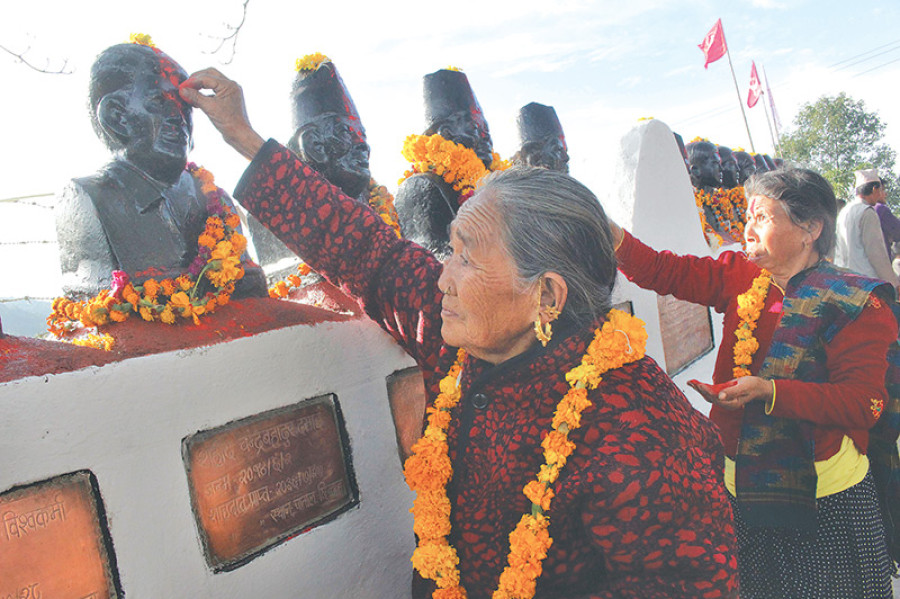Miscellaneous
16 killed in Chhintang named martyrs after 39 years
The government has decided to give martyr status to 16 people killed in the Chhintang massacre in Dhankuta district during the partyless Panchayat era on November 13, 1979.
The government has decided to give martyr status to 16 people killed in the Chhintang massacre in Dhankuta district during the partyless Panchayat era on November 13, 1979.
A Cabinet meeting on Friday decided to declare the deceased in the incident as martyrs. Ironically, the proposal was tabled by Minister for Industry Sunil Bahadur Thapa, the son of the late Surya Bahadur Thapa during whose prime ministership the 16 people were massacred. The Thapas are originally from Dhankuta.
Government Spokes-person and Minister for Information and Communications Mohan Bahadur Basnet confirmed the decision.
The mass killing by the king’s erstwhile autocratic regime on the charge of acting against the state is known as Chhintang Massacre in Nepal’s history.
Minister Thapa reportedly told the meeting that he had promised during his recent election campaign to the Chhintang locals that those assassinated would be declared martyrs.
The decision was hailed by political leaders including former prime minister Baburam Bhattarai. “Those who died in a democratic struggle should be declared martyrs collectively. Martyrs don’t belong to any political party,” said the Naya Shakti Party leader, one of the architects of the decade-long Maoist insurgency.
The decision comes as a consolation to the victims’ families. “Tears started rolling down my eyes as I could not believe [news of] the decision,” Balram Rai, whose father was one of those killed on that fateful day, said on Friday. He had got some solace that the state had addressed their long-standing demand.
Family members of those killed 39 years ago feel overwhelmed by the recognition. “The state had turned down our call for long. The government deserves our praise for this belated honour,” said Rai, who heads the Chhintang Sarokar Samaj. The victims’ families have decided to celebrate the decision with Dipawali.
The sixteen killed included housewives and common people, charged with being communist campaigners. One pregnant woman, Shree Maya Rai, died from excessive bleeding caused by torture. Another woman is said to have died after being sexually assaulted by security personnel.
Kesharman Rai, a 14-year-old seventh grader, was gunned down by police and Dhanbir Rai, a farmer, who did not advocate a political ideology, was also killed brutally. It is said that some of them were politically active and organised against the intolerant regime. A park was constructed in Chhintang in their honour later. Every election, political parties assured the families of the deceased of redressal.
Out of the 30 households of the victims’ community, the condition of 23 families is poor. They have sought state support with jobs and educational opportunities and healthcare facilities.
After the political change of 1990, they put forth demands for martyr status, compensation for the victims’ families, technical and vocational training, and jobs. With the declaration, they will get Rs1 million per martyr from the government.
Meanwhile, the Cabinet meeting on Friday agreed to accept a loan assistance of Rs8 billion from the World Bank for the Livestock Centre Innovation Project.
The meeting also permitted Nepal Army Major General Gaurab Tandul to compete in the UN Force Commander by promoting him to the post of lieutenant general. Colonel Gehendra Raj Maharjan (technical) was also elevated to brigadier general’s post.
(With inputs from our Dhankuta correspondent Ramesh Chandra Adhikari)




 23.12°C Kathmandu
23.12°C Kathmandu









